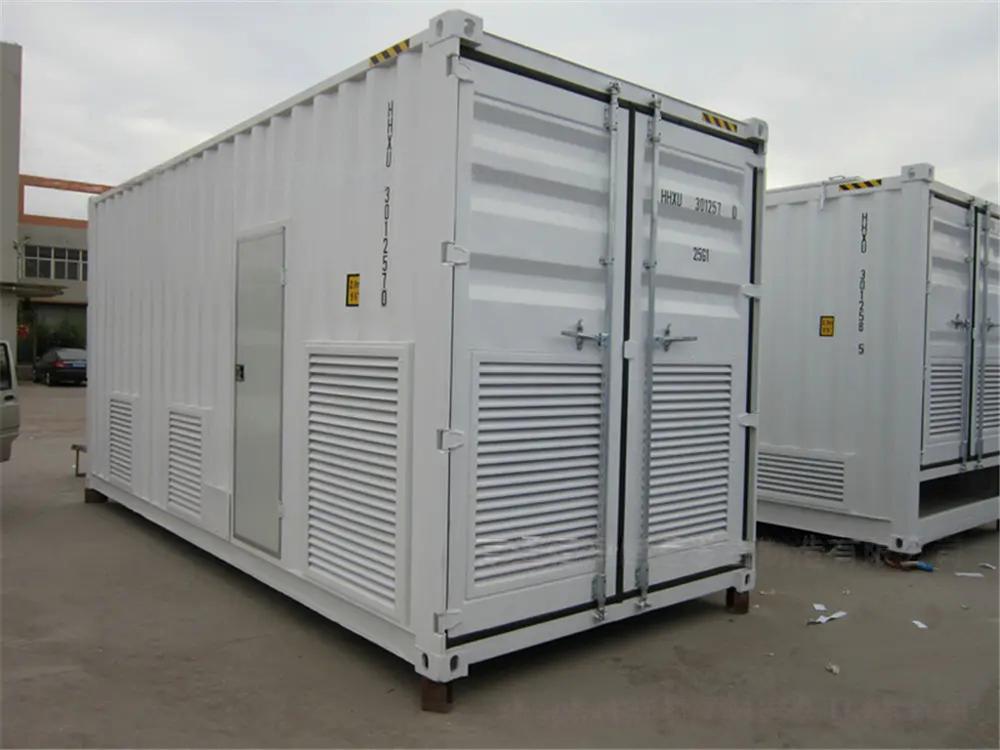
Nov . 10, 2024 18:52 Back to list
Wholesale NFPA Compliant Energy Storage Solutions for Efficient Power Management Systems
Wholesale NFPA Energy Storage Systems A Comprehensive Overview
In recent years, the demand for energy storage systems has surged due to the growing need for renewable energy integration, grid stability, and efficient energy management. Among the various standards and codes governing the implementation of energy storage systems, the National Fire Protection Association (NFPA) guidelines play a crucial role in ensuring safety and reliability. This article explores the significance of wholesale NFPA energy storage systems, their implications for businesses, and key considerations for stakeholders.
Understanding NFPA Energy Storage Systems
The NFPA is a global nonprofit organization dedicated to eliminating death, injury, property, and economic loss due to fire, electrical, and related hazards. In the context of energy storage systems, the NFPA 855 standard outlines the safety requirements for the installation and operation of stationary energy storage systems. This standard is particularly relevant as it addresses the unique hazards associated with battery systems, including fire risk, chemical exposure, and the potential for thermal runaway.
The NFPA’s guidelines ensure that energy storage installations are designed with safety in mind, incorporating measures such as fire prevention, emergency response planning, and regular maintenance protocols. By adhering to these standards, manufacturers and operators can minimize risks, enhance reliability, and protect both personnel and property.
Impact on the Wholesale Market
As businesses increasingly embrace the transition toward renewable energy sources, the wholesale energy market is evolving to accommodate energy storage solutions. The integration of NFPA-compliant energy storage systems allows for more efficient energy distribution, peak load management, and ancillary services. These systems can be deployed in commercial, industrial, and utility-scale applications, enhancing the overall efficiency of energy use.
Companies engaged in the wholesale energy market must prioritize compliance with NFPA standards to mitigate hazards associated with energy storage. By investing in approved systems, businesses can not only protect their investments but also gain a competitive edge in the market. Compliance can lead to lower insurance premiums, reduced liability, and enhanced public perception as a safety-conscious organization.
Key Considerations for Stakeholders
wholesale nfpa energy storage systems

For stakeholders involved in the implementation of wholesale NFPA energy storage systems—ranging from manufacturers and installers to end-users—several considerations are paramount
1. Regulatory Compliance It is essential to stay informed about the latest NFPA guidelines and local regulations governing energy storage systems. Ensuring compliance not only enhances safety but also facilitates smoother project approvals and permit processes.
2. Risk Assessment Conducting thorough risk assessments for energy storage installations is critical. This includes evaluating potential fire hazards, chemical risks, and logistical concerns related to system placement and access for emergency response.
3. Emergency Preparedness Developing and implementing comprehensive emergency response plans is vital. Regular training for personnel on these plans ensures readiness in the event of incidents, particularly those related to fire or chemical exposure.
4. System Maintenance Regular maintenance and inspections of energy storage systems are crucial to ensuring ongoing compliance with NFPA standards. Scheduled maintenance can help identify potential issues before they escalate, reducing downtime and enhancing system reliability.
5. Community Engagement Engaging with local communities and stakeholders about the safety measures in place can foster trust and transparency. Educating community members about the benefits and safety of energy storage systems can alleviate concerns and garner support for renewable energy initiatives.
Conclusion
Wholesale NFPA energy storage systems represent a significant opportunity for businesses to enhance energy efficiency, integrate renewable sources, and ensure safety. By adhering to NFPA standards, stakeholders can navigate the complexities of energy storage implementation while minimizing risks associated with fire and chemical exposure. As the energy landscape continues to evolve, embracing these best practices will be essential for maintaining safety and reliability in an increasingly energy-driven world.
-
Efficient Energy Storage System Solutions | Reliable ESS
NewsAug.27,2025
-
High-Performance Energy Storage Systems | OEM & ESS Solutions
NewsAug.26,2025
-
Next-Gen Energy Management System: Save Energy & Costs
NewsAug.25,2025
-
Intelligent Energy Management: Optimize & Save Power Smartly
NewsAug.24,2025
-
Boost Efficiency with Smart EMS & Energy Management Systems
NewsAug.23,2025
-
Smart Energy Management System | Save Costs & Boost Efficiency
NewsAug.22,2025


